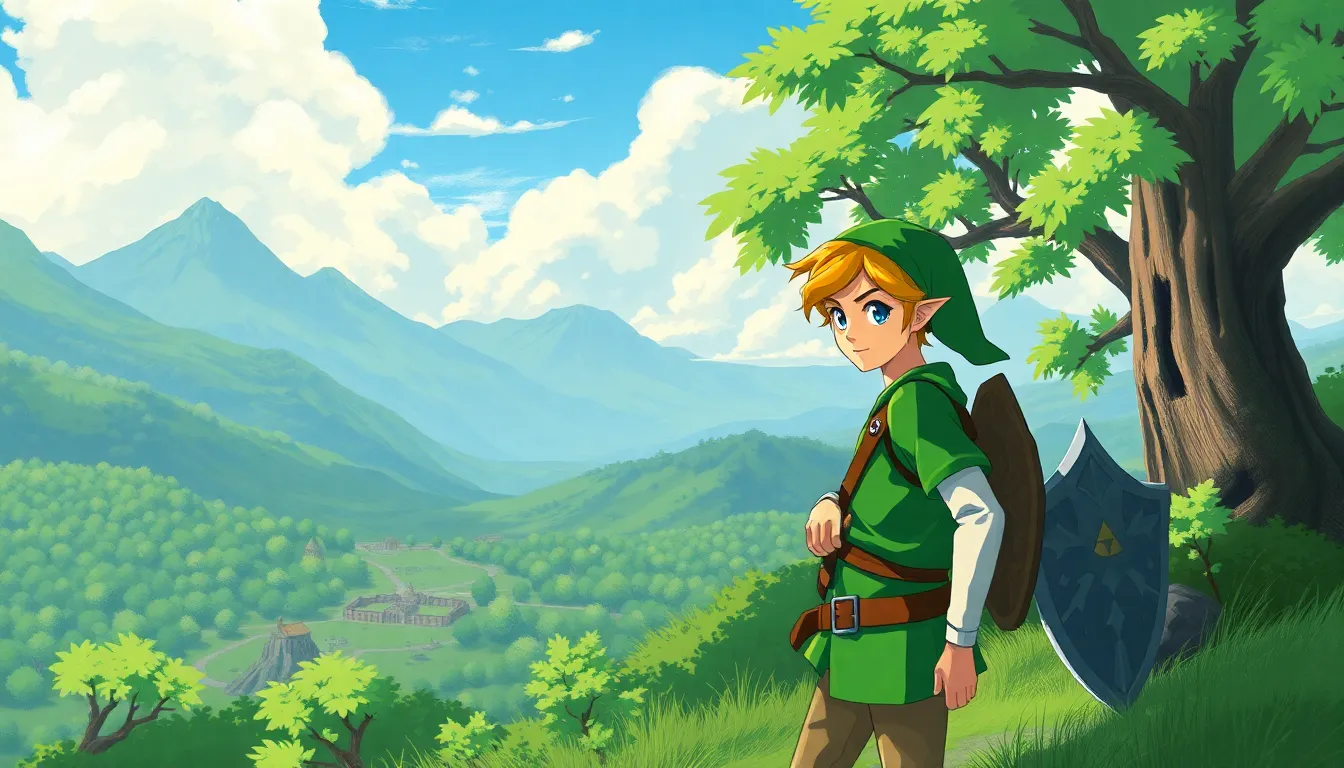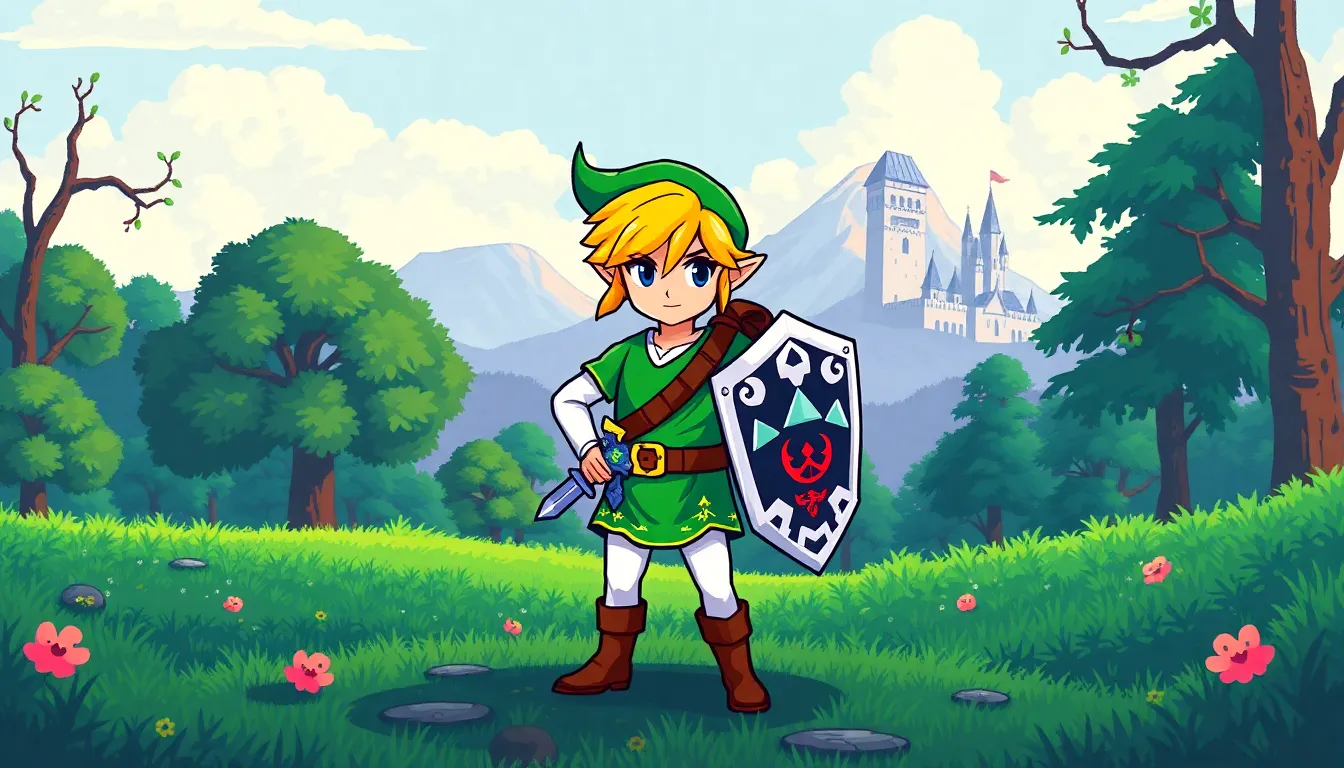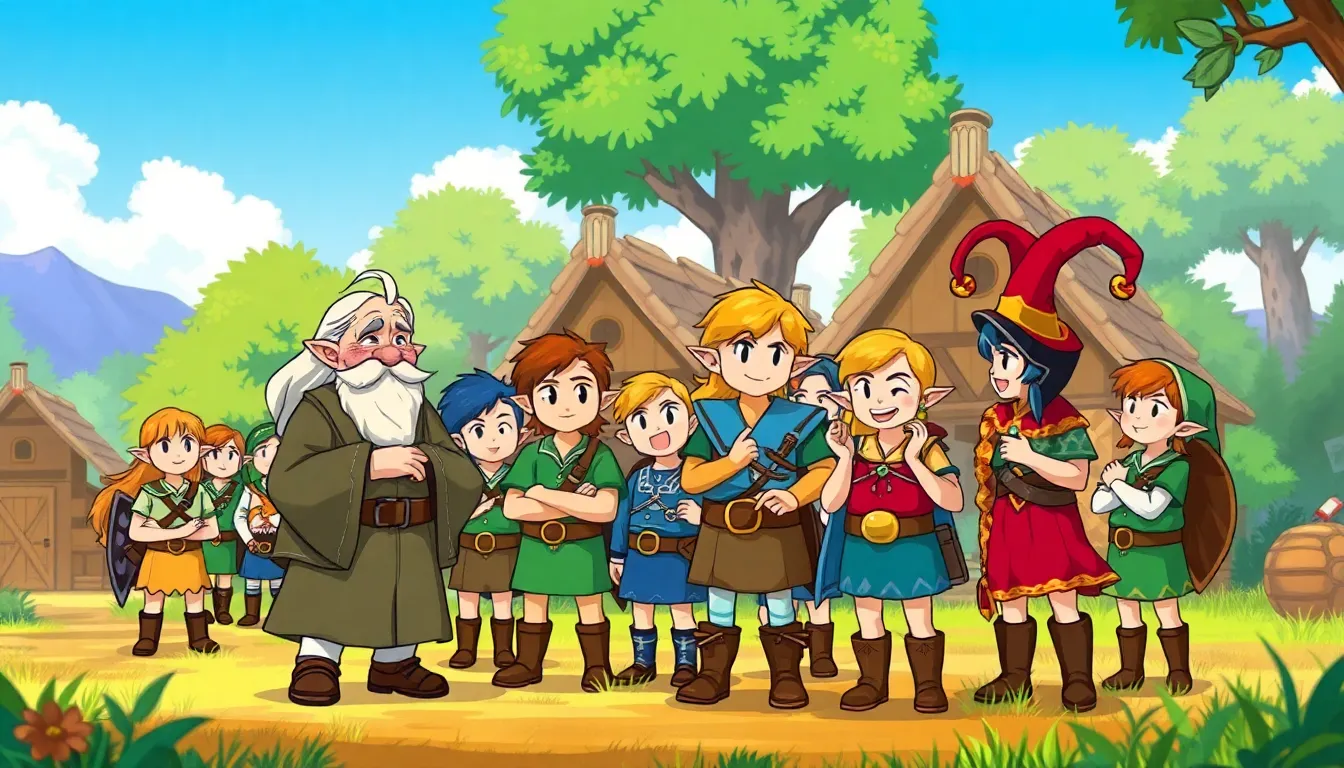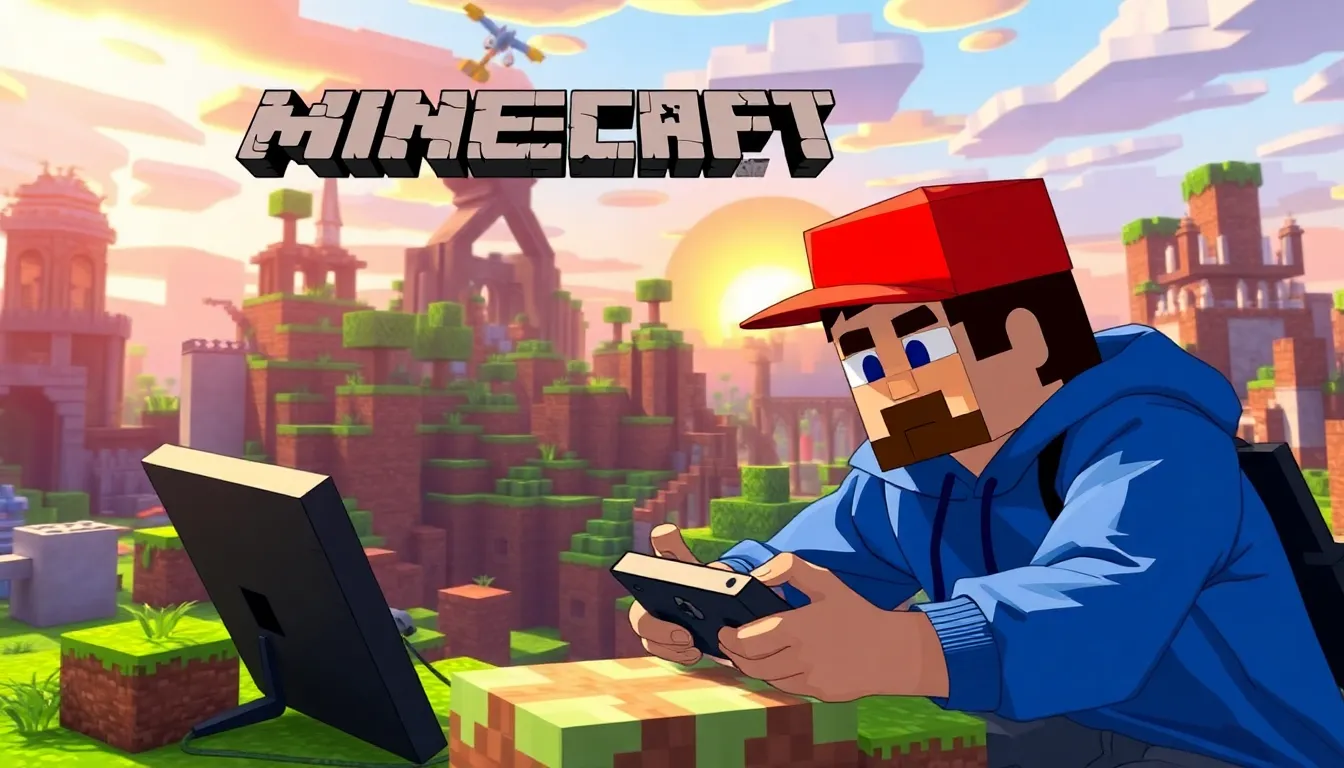In a world where princesses get kidnapped more often than they change their hairdos, one brave hero emerged to save the day—Link. The original Zelda game, released in 1986, didn’t just introduce players to a fantastical realm; it revolutionized the gaming industry. With its open-world design and puzzle-solving elements, it laid the groundwork for countless adventures to come.
Table of Contents
ToggleOverview of Zelda Original Game
The original Zelda game, launched in 1986, marked a significant milestone in gaming history. This action-adventure title introduced players to the expansive land of Hyrule, where exploration and discovery became essential components of gameplay. Players control Link, tasked with rescuing Princess Zelda, who frequently falls victim to the antagonist Ganon.
Gameplay thrives on its open-world structure, allowing players to explore dungeons, forests, and mountains at their own pace. Puzzles and combat challenges engage users, creating a well-rounded experience. Items such as bombs, bows, and magical spells enrich gameplay, providing players with multiple strategies to tackle obstacles.
Graphics in the original game, while limited by technology standards of the time, created a vibrant and immersive atmosphere. Character designs and landscapes contributed to the game’s charm, fostering attachment and nostalgia. The music composed by Koji Kondo enhanced the emotional resonance, leaving lasting impressions on players.
The influence of the original Zelda game extends beyond its initial release. It inspired countless sequels and spin-offs while establishing genre-defining elements for action-adventure games. Numerous titles across various platforms continue to draw inspiration from its mechanics and storytelling approach, reinforcing its legacy in gaming culture.
As players navigated through Hyrule, they uncovered secrets and excitement at every turn. The original Zelda game set a precedent for future titles, creating a foundation for innovation in game design. Enduring popularity testifies to its lasting impact within the video game industry.
Gameplay Mechanics

The original Zelda game features innovative gameplay mechanics that engage players in unique ways.
Exploration and Adventure
Exploration defines the experience within Hyrule’s vast landscape. Players control Link as he traverses various terrains, including forests, mountains, and dungeons. Each area presents different challenges and hidden treasures. Engaging with non-playable characters reveals quests and lore that enrich the overall narrative. Collecting items such as heart containers enhances Link’s abilities. Players set their own pace, encouraging a personalized adventure. This open-world structure allows for discoveries, fostering a sense of freedom. The game invites exploration, rewarding curiosity with secrets and surprises.
Puzzle Solving
Puzzle-solving stands out as a core mechanic in the original Zelda game. Players face intricate puzzles within dungeons that require critical thinking and resource management. Each puzzle integrates seamlessly into the environment, demanding both skill and strategy. Utilizing items like bombs and magical spells presents diverse approaches to overcoming obstacles. Successful navigation through puzzles often leads to valuable rewards, enhancing gameplay progression. Challenges vary, ensuring that players remain engaged and motivated. Completing puzzles not only advances the narrative but also strengthens the connection to Hyrule’s lore, deepening the game’s immersive experience.
Graphics and Sound Design
The original Zelda game features distinct graphics and an unforgettable musical score that enhance the overall gameplay experience.
Art Style
Unique pixel art characterizes the graphics of the original Zelda game, creating a vibrant aesthetic that captures the essence of Hyrule. Environments like forests, dungeons, and mountains pop with colors that evoke exploration. The simplistic yet effective design allows players to focus on gameplay rather than distractions. Each character, including Link and Ganon, presents clear visual identities that contribute to storytelling. NPCs are easily recognizable, helping players navigate quests and interactions. Artistic elements also reflect the technological constraints of the time, showcasing creativity in design choices. This art style laid the groundwork for visuals in future titles within the franchise.
Musical Score
Koji Kondo’s musical score plays a critical role in establishing the game’s atmosphere, with memorable themes that resonate with players. Iconic melodies accompany key moments throughout Hyrule, enhancing emotional engagement. The main theme captures adventure, inviting players into the world. Each dungeon has unique tracks that signal shifts in tone and challenge, creating tension and excitement. Sound effects, like the “slashing” of Link’s sword and footsteps within dungeons, add depth to experiences. The score complements gameplay mechanics, reinforcing emotions tied to exploration and discovery. Overall, the thoughtful composition of music elevates the gaming experience, solidifying its status as a classic.
Impact on Gaming Culture
The original Zelda game significantly shaped gaming culture, inspiring an entire generation. Its innovative design and gameplay mechanics set a new standard in action-adventure titles.
Influence on Future Titles
Numerous games draw inspiration from the original Zelda’s mechanics. Titles like “Dark Souls” and “The Legend of Zelda: Breath of the Wild” incorporate vast open worlds and exploration. Game developers frequently reference its puzzle-solving elements, using them to engage players in similar ways. Characters like Link became iconic, influencing protagonist designs in subsequent games. Adventure titles today still strive to replicate the magic established in this classic, demonstrating its long-lasting influence.
Legacy in the Gaming Community
The original Zelda holds a revered status within the gaming community. Players often reminisce about its impact on their childhood gaming experiences. Fans remain dedicated, participating in fan art, discussions, and speedrunning events. Competitive play emerged around its mechanics, fostering a sense of community among enthusiasts. Zelda-themed conventions and fan gatherings further celebrate this legacy, showcasing the game’s cultural significance. Its ongoing presence in gaming events underscores its importance in shaping modern gaming culture.
The original Zelda game remains a cornerstone of gaming history. Its innovative mechanics and captivating storytelling have left an indelible mark on the industry. Players continue to cherish the adventures in Hyrule, reflecting on the game’s ability to inspire exploration and critical thinking.
The legacy of Zelda extends far beyond its initial release, influencing countless titles and shaping the action-adventure genre. As fans celebrate its cultural significance through various forms of expression, the game’s impact on modern gaming culture is undeniable. The original Zelda’s charm and creativity ensure it will always hold a special place in the hearts of gamers around the world.



